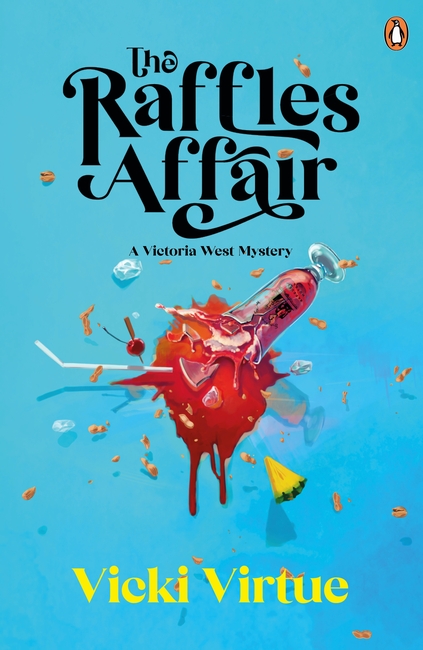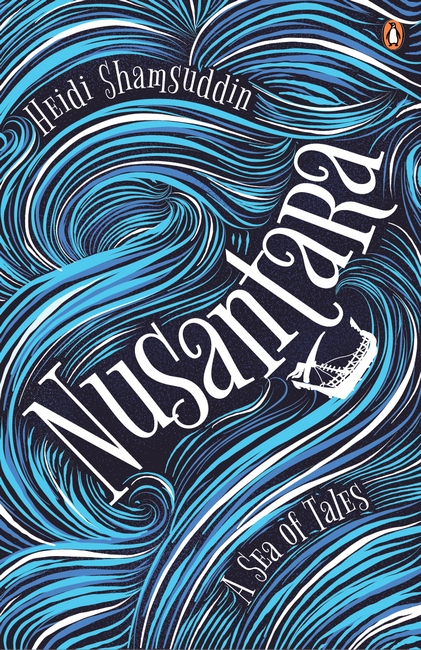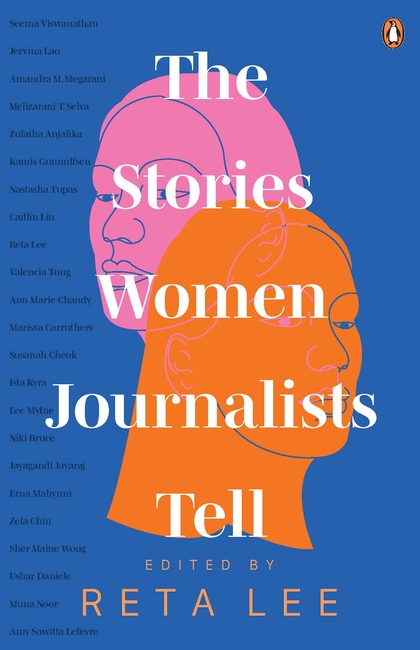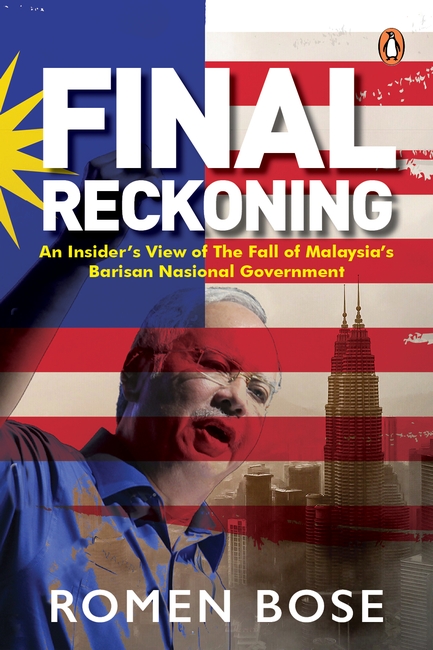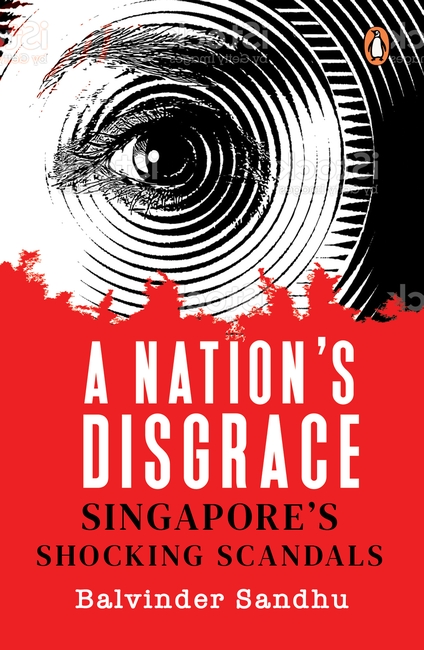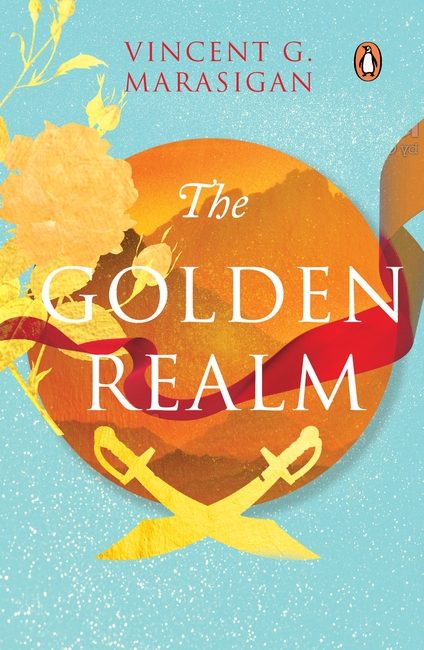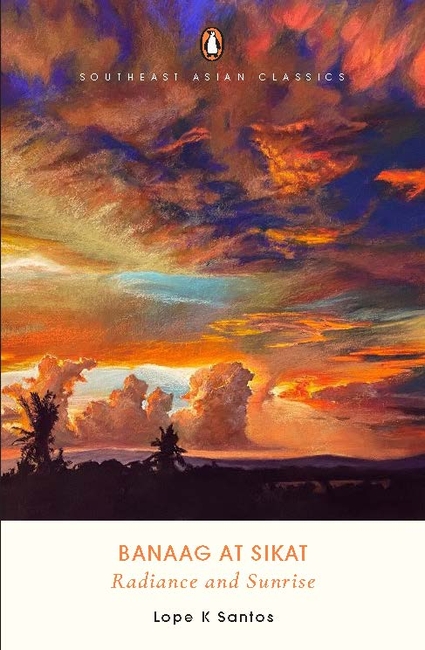When an apple falls, does it roll far or stay close to its tree? Is it an exact clone of all the other apples the tree produces or something entirely different?
This is the question that has perplexed the public about Marina for the simple reason that she is the daughter of the man who has governed Malaysia for almost twenty-four years. Does she echo him in his view of the world, or does she chart her own path? Why is it that in her own public life, in her writing and speeches, she expresses opinions that seem to contradict his?
This book hopes to detail how she has navigated her life as the daughter of a charismatic politician and a loving father, even as sometimes she has chafed at being constantly under his shadow. It talks about how she has struggled to find her own identity, to defend her worldview at times and to reconcile them with his at others.
She tells the story of growing up as the daughter of Malaysia’s most influential leader, from the values instilled in her as a child, right up to the day he was forced to step down as the 7th Prime Minister after
leading the historic ouster of the government he used to lead.
Archives: Books
The Raffles Affair
Fresh from a gruelling three-month assignment in East Africa, beautiful former MI6 agent Victoria West arrives at Raffles Hotel in Singapore to attend her friend’s wedding. But Victoria’s plans for a relaxing break end abruptly with news that the groom has been kidnapped. Warned not to contact the police, Victoria sets out to find him. But in this glamorous setting, nothing is quite what it seems. As the deadline to pay the ransom draws near, events take a deadly turn. Victoria suspects murder. But which of the wedding guests did it? They all have a motive… and a talent for lying. With time fast running out, Victoria must untangle the web of domestic squabbles, red herrings and false alibis before it is too late.
Nusantara – A Sea of Tales
Nusantara – A Sea of Tales is the most comprehensive collection of folk tales, fairy tales, myths and legends from the Nusantara and Southeast Asian region, and was written to sit alongside the great anthologies of folklore from other parts of the world.
Although it is impossible to trace the origins of most of these traditional tales, we do know that these stories were used as a means to discover ourselves and the world around us. Like a living creature, these tales came into existence at some point, and have since evolved and adapted to suit the needs of the community that it finds itself in. The seafaring nature of the people in this region has no doubt contributed to the spread of these tales and explains the fascinating variations across Southeast Asia.
These rich and layered tales contain all manner of wonder, marvels and strange curiosities, and have been written to enthral a new audience. The author has delved into the history and the meaning behind these tales but like all good fairy tales and folk tales, each reader will extract their own meaning from these stories. The symbols in these stories engage our imagination and challenges us to question, discuss and unravel life’s conflicts and mysteries. Herein lies the true power of these stories and the reason why these tales must be preserved and allowed to live and breathe once more.
The Stories Women Journalists Tell
Twenty-two women journalists in Southeast Asia share their personal experiences in essays spanning politics, culture, travel, human interest and lifestyle.
In these insightful and compelling essays, the former and current journalists take us through the journey as a woman covering news in male-dominant newsroom culture while keeping eyes on the ground. The Stories Women Journalists Tell is an inspiring collection of essays that celebrates kinships, camaraderie and strength, while highlighting our most important and interesting history in events and news.
Themes
1. Politics: The essays reflect events that happened in a local environment while providing balanced coverage of key organisations and political events.
2. Life & Style: The essays in this volume foreground the role that life & style writers and editors played in reporting news while staying grounded in an image-obsessed world.
3. Human Interest: The human interest essays here focus on details that resonate emotionally with the readers, and sometimes can be described as ‘getting the story behind the story’ or ‘putting a face on the news.’
4. Culture: The essays discuss a particular belief or values of a particular group of people at a particular time.
5. Travel: The essays here are part travelogue, part literature, which can double up as a historic travel narrative.
Final Reckoning: An Insider’s View of The Fall of Malaysia’s Barisan Nasional Government
From the innermost sanctum of the Prime Minister’s private offices among the Minaret-studded buildings of Putrajaya to streets filled with tear-gassed protestors in downtown Kuala Lumpur, Romen Bose, a former international correspondent and political communications consultant to then Prime Minister Najib Razak, provides a gripping and engaging true story of drama, intrigue, violence and incompetence that finally ended the rule of Malaysia’s sixty-one- year old Barisan Nasional Government in May 2018.
With a front-row seat to the major controversies that hit the Najib Razak administration, Romen reveals for the first-time how the country’s leadership reacted to the disappearance of MH370 and the still classified covert moves to retrieve the remains of Malaysian victims following the shooting down of MH17.
Final Reckoning also gives a blow-by-blow account of how the 1MDB scandal rocked the Government and the attempts by the country’s top politicians and their advisers to contain and explain it away. Through numerous conversations with key players and his presence at various top secret meetings amid the global investigations into the scandal, Final Reckoning pieces together how a sitting Prime Minister became, Najib claims, ‘the fall guy’ for a mastermind who had managed to pull off the single biggest con of the century. In doing so, Final Reckoning tells the story of an ultimately futile scramble to try and preserve a crumbling political legacy that had long been out of step with the realities of a new Malaysia.
This book is the story of the wild roller-coaster ride that marked the Barisan Nasional Government’s rule, from the 2013 General Elections, until its 61-year-old hold on power came to an end on the night of 9 May 2018.
She Never Looks Quite Back
The life of a woman, no matter who she is or where she might be, typically encompasses loss and longing, despair and courage, regret and love. She Never Looks Quite Back murmurs of such experiences and more. The stories depict themes of growing up, social unrest, nature, war, migration, reconciliation, sensuality, infidelity and the pandemic. The narratives allow glimpses into lives conflicted by chance and choice… women who find themselves in the most extraordinary circumstances, yet never giving up, not without a fight.
Be transported from Singapore’s swanky skyscrapers to wild Malaysian forests to rough African seas through waves of penultimate moments. Ode to Joy plays a forgotten tune while reliving the scars of surviving the Japanese Occupation in Singapore. Bird Watching captures a woman’s panic and escape, eventually plunging into the depths of her existential being. The Liquid Goalie -a fictionalised true story-charts a young Gambian woman on a perilous journey to Europe. A Polish in Katarzyna’s Secret is bent on staying alive, despite violation to her body, to reunite with her children someday.
Mallika Naguran’s debut collection of short stories reveals women’s unquenchable thirst for life without being unfazed by cruel turn of events. Her lyrical style of writing amplifies the fragility of humans while bringing into play metaphorical connection and intervention. The tales are timeless yet prick at many of today’s issues.
A Nation’s Disgrace: Singapore’s Shocking Scandals
Singapore is often known as a ‘clean’ country and its citizens ‘law-abiding’. However, every once in a while, the island has been shocked by an incident or a crime so unexpected and shocking, it grabs headlines and piques the interest of locals and international press alike.
Spanning across all kinds of crimes, this collection has one thing in common – shock value. Cases covered in the book include high-profile ones like the NKF scandal, the City Harvest Church debacle, Singapore’s most-wanted terrorist, Mas Selamat, and how one man in Singapore – Nick Leeson – brought down one of the UK’s oldest financial institutions, Barings Bank. Plus, there are a few shocking murders thrown in too.
This book is a collection for anyone interested in Singapore society, law and history, to find out more about how these cases were discovered, the law-enforcement processes that followed and what happened to the offenders after the cases ended.
The Golden Realm
Pula has now metamorphosed into a formidable fighter.
He is just like his father, Sikat, the aging Datuk who holds a massive realm on the northernmost tip of Borneo. It is during a time when the early datuks rule the Southeast Asian region, sometime in 400 AD.
But an incident erupts-the neighbours, D’yak people who have gory practices of headhunting, try to stir trouble in the realm. In response, Datuk Sikat sends his highest officer to infiltrate the den of Jooba and obliterate their kind, a savage and vicious threat.
And as the kadatuan reels on a major war with the headhunters, Tali his eldest, has a sinister plan. He longs for the throne of his father, but his half-brother, Pula, stands in his way. Who will succeed to be the next datuk of the realm?
Th e story continues with the amazing encounters of Pula of the diverse tribes of Borneo and the Philippines, leading to his discovery of the Golden Realm.
Banaag at Sikat (Radiance and Sunrise)
Lope K Santos’ novel, Banaag at Sikat, is a love story framed in the context of a political tale. Published in 1906, it became the fountain head of social realism in the Tagalog novel and hailed as Asia’s first proletariat novel. It revolves around Delfin, a poor man in love with Meni, a capitalist’s daughter. Delfin is a socialist while Felipe, his friend, is an anarchist. Delfin wants the citizens to have more rights in business and property relations. He believes that society could be changed through education. On the other hand, Felipe believes in tearing down society’s walls. Factories should be owned by those who work there and land owned by those who till it. Although he is a landlord’s son, Felipe hates his father’s ways. He wants to see a society with equal status for all, where the horizon of hope is limitless. Banaag at Sikat mirrors the clash of forces during the early days of the American empire. Its burning passages on race, class, and colonialism still resonate today. Translated by ‘one of Asia’s best writers’, may this modern rendering inspire new readers to shape their lives so they ‘can help change the world’.
Bloody Saturday
Saturday, August 14, 1937 – that summer Shanghai was expecting to be hit by a typhoon of ‘violent intensity’. The typhoon passed, but what did strike Shanghai was a man-made typhoon of bombs and shrapnel that brought aerial death and destruction such as no city had ever seen before. The clock outside the Cathay Hotel stopped at 4.27 p.m. precisely as the first bombs landed on the junction of the Nanking Road and the Bund; the second wave of explosions struck the dense crowds outside the Great World amusement centre in the French Concession. Bloody Saturday reconstructs the events of that dreadful day from eyewitness accounts.







